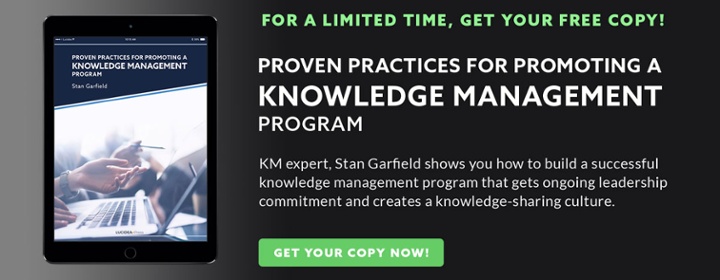
As part of the research for my current book, Proven Practices for Promoting a Knowledge Management Program, I interviewed widely recognized KM leaders to get their take on the secrets to successful KM strategy development and implementation. One of these leaders is with Microsoft.
According to Jean-Claude Monney, Microsoft’s Chief Knowledge Officer—Enterprise Services Delivery, the biggest obstacles to selling KM are culture and not being understood. He believes if you rely on a tool to collaborate and you don’t understand culture, you will fail. So, he regularly shares how they do KM at Microsoft—having talked to over 70 customers—and regularly gives speeches worldwide. He believes that by showing a different way of doing things, success breeds success. The knowledge-sharing culture that Microsoft has created helps people change—but those changes are a result of defining what is and is not accepted.
Jean-Claude’s Top Tips
- Culture—Culture eats strategy for breakfast. Align performance management and desired goals to encourage sharing, collaboration, and reuse.
- CoPs—Communities of Practice are the heart and soul of KM. Have one and only one per domain. Don’t put goals on them but measure their “health”. Their diversity of thought is their richness.
- Process—Have a documented end-to-end KM process that includes knowledge value categories. Examples of processes are creation, reuse, capture, and growth. Write the details down. If you don’t, you can’t scale.
- Tools—Solutions are to support the KM processes. They should include social and formal collaboration, discovery, knowledge bases, and all related telemetry.
- Outcome—Partner with the business to define business outcomes and key performance indicators (KPIs). Just as finance is not responsible for sales or profits, the KM team is not responsible for business outcomes, but has insights on how to improve them using KM practices.
If you’d like to read the details of my research on Microsoft’s KM culture, and proven practices from other organizations, please consider my latest book, published by Lucidea Press, Proven Practices for Promoting a Knowledge Management Program, which offers a broad range of advice and insights drawn from my career as a KM practitioner and my research in the discipline.



